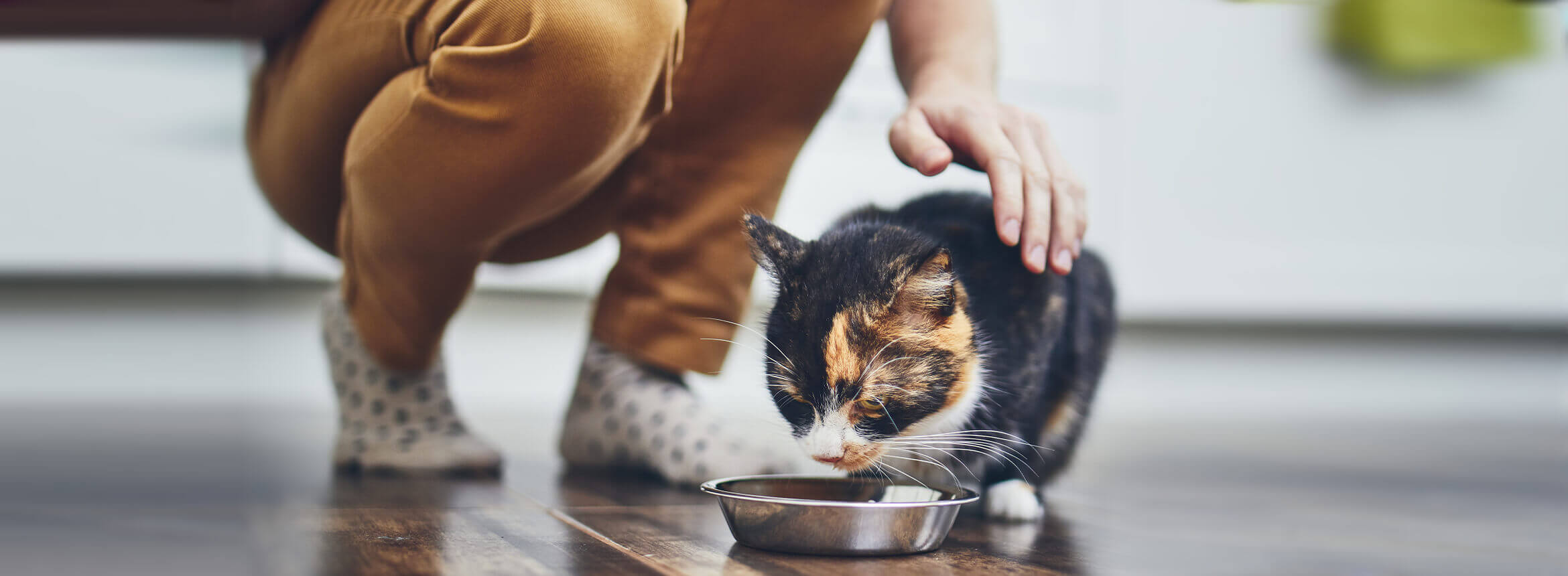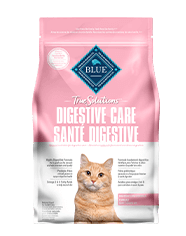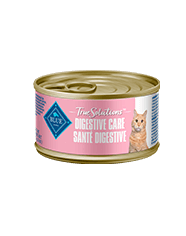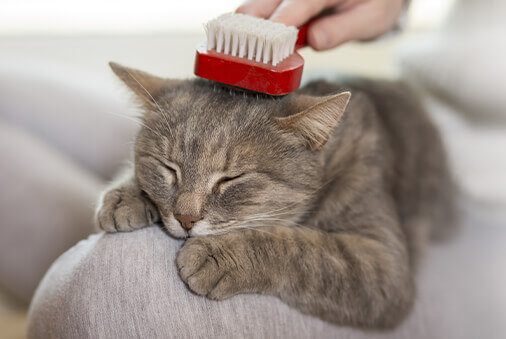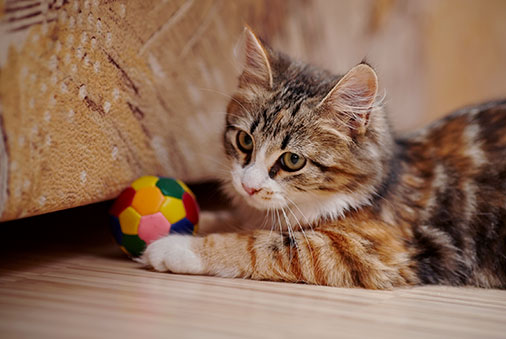Some of the most common causes of GI issues for cats include:
- Eating something they shouldn’t
- Hairballs
- Dehydration
- Intestinal parasites
- Food allergies
- Inflammatory bowel disease
- Cancer
That toy is not a snack
Your cat thought that fuzzy ball you just bought her was a snack and decided to eat it, and now she’s vomiting and has diarrhea. A veterinarian may want to take an x-ray to confirm your suspicion or to make sure there isn’t an object that’s stuck in her digestive system. Sometimes small objects can pass through your cat’s system and come out with no problem, but some objects can require surgical intervention by a veterinarian.
Hairballs
If your cat has vomited up what looks like a dead mouse, it could just be a hairball. The simple reason is that your cat is shedding and grooming herself and swallowing all that hair. To help reduce hairballs, you can try an over-the-counter hairball gel from the pet store or your veterinarian. That should help reduce clumping of swallowed hairs and help them pass through her system. Brush your cat daily to help reduce excess hair so she doesn’t ingest any while grooming.
Dehydration
If you’ve noticed your cat is constipated, the most common cause is dehydration or diet. Increased water consumption and dietary changes, like adding fiber, wet food and other foods to her diet to promote gut motility, as well as increased exercise, can help.
Parasites
Parasites are a common cause of GI problems in cats and can cause vomiting, diarrhea and weight loss. Outdoor cats can get infected from eating mice or other small rodents or from dirt. A veterinarian can identify the parasite from a stool sample and can treat your cat with the appropriate medication.
Inflammatory Bowel Disease
It can be challenging to diagnose Inflammatory Bowel Disease (IBD) because the symptoms are similar to many other GI problems – vomiting, weight loss, diarrhea and poor appetite. Your veterinarian can diagnose the disease by doing a biopsy. Treatment for IBD typically includes a controlled diet combined with antibiotics or other medications.
Food Allergy
Some cats are sensitive to certain foods and that can cause them to have diarrhea or to vomit after eating. Eliminating the food from your cat’s diet is the best way to manage the problem. Your vet may suggest an elimination diet to determine the ingredients she’s sensitive to and starting her on a specialized diet to support digestive care.
Cancer
Some cats that have been diagnosed with a GI disease may be susceptible to developing lymphoma and other types of cancer. Various treatments, including surgery, chemotherapy, radiation and palliative care, may be recommended by your veterinarian. These treatments may help your cat have a better quality of life.
There are a variety of health conditions that could cause your cat to have a sensitive stomach. While your cat could be just having a bad hairball day, it’s always best to consult with your veterinarian about any of these symptoms.

